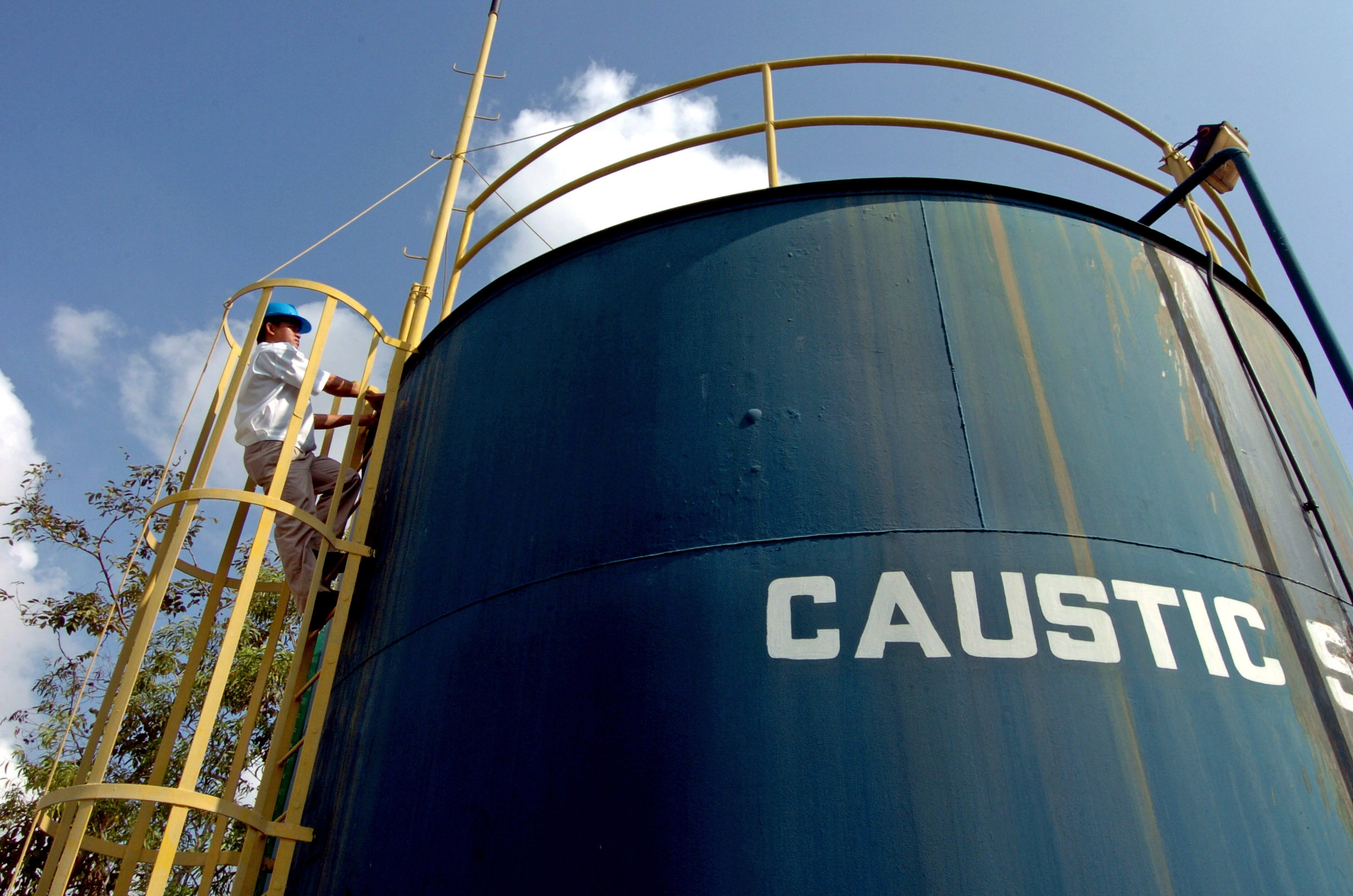10 30 m of fresh water depending upon number and size of tank s 10 caustic soda 100 kilos caustic soda flake per cubic meter of water 1 drum of rxsol 20 2015 lac for each 10 m of water or 0 5 drum of teepol per 10 m of water.
Caustic soda storage tank cleaning.
Tank inlet should be above the highest anticipated tank level with an inlet dip pipe which extends below the lowest anticipated tank level to prevent splashing of the caustic soda solution.
Equipment cleaning and repair decontamination following spills.
Caustic soda solution is a very corrosive industrial chemical.
Cleaning in epoxy tanks.
In addition caustic soda doesn t cause immediate pain when it comes in contact.
A colleague has suggested we add a significant amout of water to the tank with the hope to get the crystalised caustic into a solution which.
It is highly soluble in water and readily absorbs moisture and carbon dioxide from the air.
Because tanks in caustic soda service will have a specific gravity greater than 1 0 the ul 142 code is not acceptable.
Residue i would like to avoid entry into the tank where possible.
The tank is aproximately 15000 litres capacity however there is a small quantity of crystalised caustic soda which needs to be removed.
Caustic soda storage 30 caustic soda hydrogen chlorine hydrogen chlorine membrane diaphragm electricity.
Caustic soda is odorless so odor cannot serve as a warning.
If these elevated temperatures are required tank annealing and or naoh resistant corrosion barrier coatings should be considered to counteract potential tank damage.
Soda caustic tanks are exclusively in use in the aluminium industry for etching out the aluminium of extrusion dies.
Afterwards the extrusion dies are inserted into the tank.
The product is shipped in tank trucks railcars barges and.
The caustic soda solution is inventoried in storage tanks prior to shipment.
A caustic soap solution consisting of.
In such tanks high concentated soda is being used.
90 95 centigrade.
Sodium hydroxide also known as caustic soda and lye is a highly caustic compound and alkali that decomposes proteins at ordinary ambient temperatures and may cause severe chemical burns.
So the liquid is heated up to approx.
Storage temperatures for caustic tanks should be beneath 100 f for polyethylene tanks and beneath 120 f for carbon steel tanks.
A second tank discharge and a manway at the bottom of the tank for cleaning is recommended.
Sodium hydroxide naoh also known as lye and caustic soda is a caustic metallic base it is used in many industries mostly as a strong chemical base in the manufacture of pulp and paper textiles drinking water soaps detergents drain cleaner and in the refining of vegetable oils.







